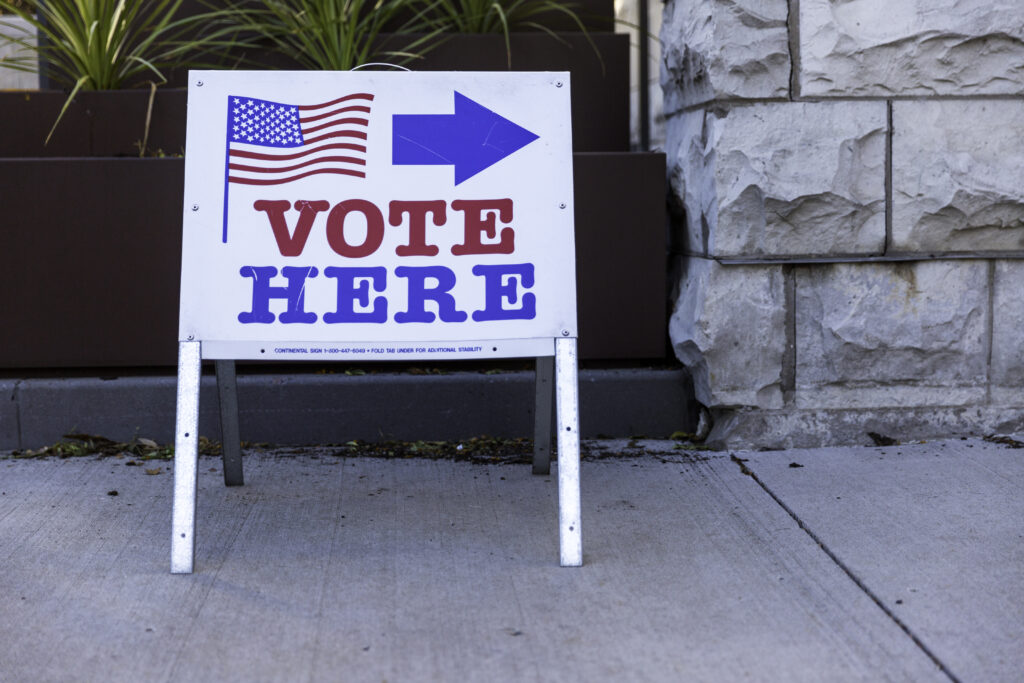Ever since I read Stephen Davies’s provocative article, I’ve been thinking about his main proposal. He suggests that the term individualist should be revived.
Some 70 years ago in the United States, the term was in popular circulation. In fact, W.F. Buckley’s book God and Man at Yale (1951) — a postwar statement against collectivism in the academy — freely used the term to describe his own outlook (later in life, he was glad to callhimself a libertarian, rightly or wrongly).
The book made a young Buckley famous, kicking off a very long career as a writer and pundit within what became known as conservatism. The introduction to the most recent edition says this book is “seminal” in “modern American conservatism.” But here’s what’s interesting: Buckley never even used the term. Okay, he used it once when quoting someone with whom he disagreed. His preferred choice in those days: individualism.
In the history of ideas from this time, the term is most associated with the brilliant and unfailingly wonderful Frank Chodorov (1887-1966). Now, here was an amazing thinker: son of Russian Jewish immigrants, an indefatigable free trader who learned from Henry George, a champion of private property and the commercial society, a true hater of statism, and an amazing writer all around. Next to Ayn Rand and Ludwig von Mises, he exercised the most profound influence on Murray Rothbard, particularly in his turn toward anarchism as the only consistent alternative to statism.
Chodorov’s main influence was Albert Jay Nock (1870-1945), yet another student of Henry George. Nock was also a family friend of the Buckleys. Nock preferred the name liberal (everyone knew that meant freedom back in his day) but gladly called himself an individualist too. The same was true of Garet Garrett, H.L. Mencken, Leonard Read, John T. Flynn, Rose Wilder Lane, Henry Hazlitt, Ayn Rand, and Ludwig von Mises. I seriously doubt that E.C. Harwood would have objected to the term either.
They were all individualists. The context of this usage was hugely important. Americans had to deal with the hijacking of liberalism by the proto-fascist New Deal, a program designed to save capitalism from the Far Left while destroying its operating mechanisms. The New Deal violations of the individualist ethos were legion: jailing people for charging too little for services, stealing the people’s gold, devaluing the dollar, driving minorities out of the labor market, cartelizing industry, rounding up Japanese citizens, and so on. National unity was the watchword, and the method was central planning — not of a socialist sort but rather in the line of corporativist thinking — and, later, conscription and war.
With the word liberalism already ambiguous at best, individualism from the 1930s through the early 1950s became a useful moniker for opposing both the left socialists and the New Dealers, to say nothing of the brownshirts on both sides of the pond.
The problem was even more intense from a European point of view. Since the Bolshevik Revolution, European politics was vexed by the presence of active communist and left-socialist movements. The rise of the fascist and nationalist parties in Europe became the backlash response: use the state but not to abolish private property, religion, and the family but rather to keep all those things and channel their energies in a collective project. The fascists prevailed in time, and covered the map of Europe with their bloody ideology. Clearly, fascism, far from being a proper response to the communist threat, was a way of realizing collectivism under a different ideological cover.
The reality of this calamity was very much in the minds of this generation of thinkers. They were anything but naive. They watched the horror unfold, lived through it, and crafted a political outlook following the war that clearly staked out a position for a consistent defense of freedom. They adopted a clean and clear statement against all forms of collectivism, whether it is based on identity politics of the Left (proletarian vs. bourgeois) or the Right (racial and religious identity as the relevant building block of the strong nation). They knew the differences and similarities of these statist ideologies. In either case, individual liberty is the cost.
The term conservatism was unknown to them as a description of people who believed in freedom. None of them used the term. But by the late 1950s, this term came to replace individualism. In time, Frank Chodorov’s own organization, the International Society of Individualists, even changed its name to the Intercollegiate Studies Institute. As to how and why this happened, Davies offers a fascinating speculation: “My own suspicion is that it was due to a combination of a generational rupture and the successful meta-political strategy of the CIA at that time, to unite disparate groups into an anti-Communist front — this involved ditching terms and concepts that were clear and therefore divisive.”
Whatever the reason, we lost a lot of information in the transition. But that was only the beginning of the confusion because it was at about this time that the left/right binary began to dominate American politics. It was always something of a subterfuge. In normal political parlance, once you decide the left is wrong, you think you are right. But what is right? In late 19th-century England, there was Labor and there were Tories. On the Continent, there were the communists, and there were the defenders of nationalism, imperialism, and the preservation of monarchical control. In America, there were left socialists and there were mercantilists among the industrial elite who might be considered right wing. Regardless, there was a third position then called liberalism, and later called individualist. They were neither right nor left.
How and when the believers in individual liberty came to be considered right-wing is a mystery to address in a different article. (It surely had something to do with the rise of Richard Nixon within the Cold War milieu.) But this much we can say for sure: the identification of the Chodorov/Nock/Flynn/Garrett generation as the “Old Right” — as editors on Wikipedia tend to do — has no basis in fact. Not one of these older thinkers would have accepted the designation. Its use only spreads confusion.
One could even go further. The acceptance of the term right-wing created the conditions that have led a generation to fail to understand the nationalist statism of the Trump administration — and innumerable other nationalist movements in Europe — is not an alternative to social-democratic collectivism but a way of saving state power from its own internal contradictions.
Left and right (as we know them today) have the same anti-liberal root in the early 19th century: two generalized forms of counterrevolution against individualism. There is left-wing collectivism and right-wing collectivism, both with roots in early 19th-century political struggles over the role of the Prussian state in holding back the advance of freedom.
If you get that, so much else becomes clear. Like Nock, my own preference is for the term liberalism because of its long heritage, its etymology, and its continued correct usage around most places in the world. Eschew it entirely and we lose touch with our roots and philosophical moorings. That said, our current moment in America today, particularly with the morally egregious emergence of identity politics based on biology, seems to call for the less ambiguous term.
To be sure, there are problems with the term individualism. It might imply moral autonomy and a rejection of community as an essential element of the good life, whereas the liberal outlook since at least Adam Smith has put human cooperation at the forefront of understanding of the free society. The point of individualism is not to reject community association. It is to embrace the idea that community should always be a choice – an individual choice. No one can conscript you into their political army.
Granted. But no term can capture every nuance. Until we can reclaim the broad term of liberalism — and the assertion that society contains within itself the capacity of self-management — individualism will do just fine.
Now, you might say: stop this obsession about ideological labels! I would like to. So should we all. I want to live in a society in which none of this matters, a world in which anyone can believe anything and do anything so long as no one else is harmed in the process. So long as we live in the presence of a beastly state, amidst the constant clamor to control it to implement someone else’s vision of what kind of life we should live, we need economically efficient ways to declare where we stand. That means, at the very least, clear opposition to collectivism.
[Originally Published at AIER]





